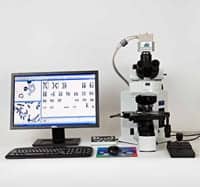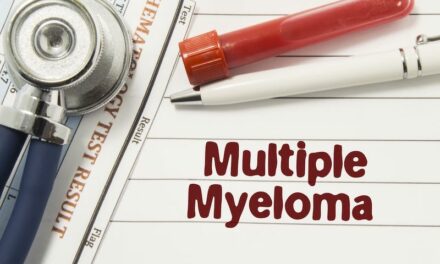The US Preventive Services Task Force has issued a final recommendation on risk assessment, genetic counseling, and genetic testing for BRCA-related cancer in women, counseling against routine testing for most women. The task force’s statement applies to women who have no signs or symptoms of a BRCA-related cancer (cancer of the breast, ovary, fallopian tube, or peritoneum).
In a consumer briefing about its recommendations, the task force explained that having a family history of breast or ovarian cancer may increase a woman’s risk of having cancer herself. In recent years, scientists have learned more about why family history may increase cancer risk. They discovered that certain mutations in the BRCA1 and BRCA2 genes in cells can greatly increase the risk for developing breast and ovarian cancer. Such mutations can also increase the risk of other cancers, including those of the fallopian tube and peritoneum.
A family history of cancer may suggest that a woman is more likely to have a BRCA mutation. Of the women who do have such a family history, however, very few have these gene changes.
The task force reviewed recent research studies on risk assessment, genetic counseling, genetic testing, and treatments aimed at reducing the risk for BRCA-related cancers in women. The final recommendations summarize what the task force learned about the potential benefits and harms of this multi-step process:
- Women who have family members with breast, ovarian, fallopian tube, or peritoneal cancer should be screened to see if their history is associated with an increased risk of carrying a BRCA mutation. If it is, women should get in-depth genetic counseling to review their family history and determine whether BRCA testing would be useful. If testing would be useful, women should receive genetic testing for BRCA mutations.
- Women whose family history is not associated with increased risk for BRCA mutations should not have routine genetic counseling or BRCA testing.
Most women—more than 90%—do not have a family history that puts them at increased risk for having a BRCA mutation, the task force explained. As a result, genetic counseling, BRCA testing, and risk-reducing treatment have few or no benefits for most women.
BRCA testing in women who are not at risk has the potential for significant harms. Test results are often unclear and women have to live with uncertainty about whether they will or will not develop cancer. Unclear tests lead many women to take powerful medicines or have major surgery that they may not need.
On the other hand, for women who do have a family history that is associated with an increased risk for BRCA1 or BRCA2 mutations, risk assessment, genetic counseling and BRCA testing, and risk-reducing treatment can have moderate benefits, the task force wrote.
Risk assessment questions can accurately predict which women could benefit from genetic counseling. Genetic counseling generally helps a woman understand what it might mean to have a gene mutation that may increase her chances of developing cancer. It also can help her make an informed decision about whether to have genetic testing.
The full recommendations and associated documents, Risk Assessment, Genetic Counseling, and Genetic Testing for BRCA-Related Cancer in Women: US Preventive Services Task Force Recommendation Statement (AHRQ Publication No. 12-05164-EF-2), are available via the website of the US Preventive Services Task Force.




